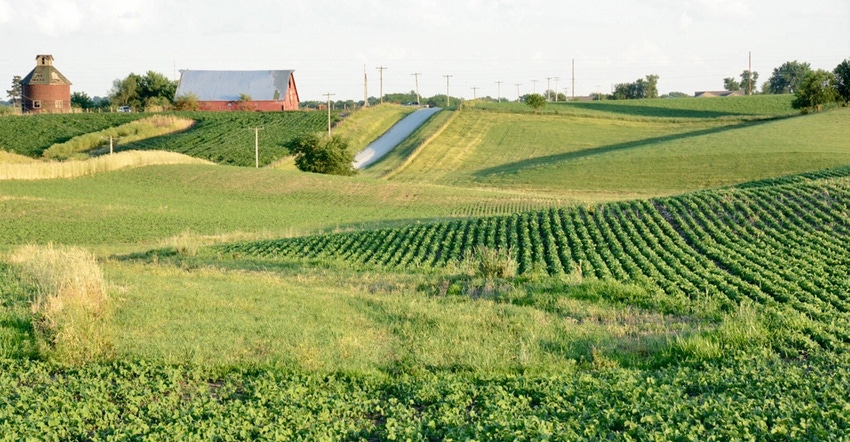April 16, 2018

There comes a time every spring when the fields eventually dry and the farm equipment comes out, roaring and ready to prepare the land for another crop season. I know this is a time of great anticipation but also considerable anxiety. The workdays are long, and sometimes the work windows are narrow. Still, there is something comforting to me about this annual burst of activity. It is reassuring to see the cycle of rebirth and to know that soon the fields will be filled with green.
In addition to the sights and sounds of this fieldwork, there is that wonderful scent of fresh soil. It’s so prevalent that I don’t even have to be out in the field — I can smell it as I drive down the road. That rich, earthy aroma reminds me of home. It takes me back to a time long before I was able to drive the tractor myself, but it sure was nice to dig my toes into that cool, fresh soil.
Back then I didn’t know what created that smell, but I have learned since that it is caused by two gases: geosmin and 2-methylisoborneol. Turns out, humans are particularly good at detecting the presence of these two gases. That might explain why I have heard so many others who share my experience with this aroma.
So what causes soil to release this smell? It’s primarily a byproduct of two types of soil microorganisms: actinomycetes and fungi. They, along with many other soil microbes, naturally exist in soil and help decompose organic matter. The decomposition process releases vital nutrients from the organic matter.
Stop and sniff
Researchers still have a ways to go before they can tie these odors into a real measurement system for soil health. But for now, detection of this scent has been incorporated into the “sniff test,” a simple yet effective way to evaluate a healthy soil. If you have sufficient organic matter in your soil, and conditions are right for normal growth and decay cycles of that organic matter, you’ll get that wonderful smell.
On the other hand, the absence of that smell can mean there could be opportunities for making improvements. If there is a chemical or ammonia smell, it might mean it’s time to evaluate your pesticide or fertilizer program. If there is a rotten-egg smell, you might have drainage or compaction problems. And although it might seem counterintuitive, if there is no smell at all, it could also be an indication that something is out of balance.
They tell us it’s important for our health to stop and smell the roses from time to time. It is also good for your farm’s well-being to stop and sniff the soil. Oh, and to perform the sniff test, you don’t have to pull out heavy equipment and tear up the surface like we did when I was a kid. A little shovel works just fine on those conservation tillage fields.
Here’s wishing you a healthy, happy planting season!
Dozier is the Illinois state conservationist. Direct comments or questions to [email protected].
About the Author(s)
You May Also Like




